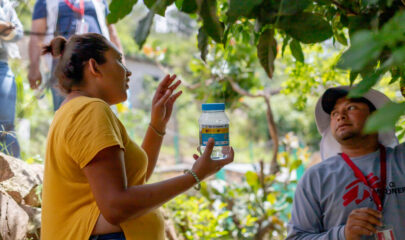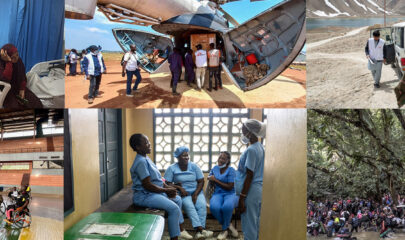MSF EMERGENCY RESPONSE HUB
Epidemics, extreme weather events, migration and forced displacement: Latin America, like many other regions, faces numerous humanitarian challenges, some exacerbated by the consequences of climate change.
Anticipating a growing need for humanitarian assistance connected to the effects of the climate emergency, Doctors Without Borders/Médecins Sans Frontières (MSF) teams based in Mexico City are working with our operational centres in Geneva and Brussels and teams in Latin America to set up an emergency monitoring system to help offer communities ongoing and future critical medical support.
“This is the only MSF hub covering such a vast region,” says Tommaso Fabbri, MSF emergency coordinator and project manager. “It enables us to develop a better understanding of the impacts of climate change on people’s humanitarian needs. This is important, as those impacts add a layer of complexity to existing vulnerabilities.”
Launched in January 2023, the emergency hub (E-HUB) will document and centralize management of MSF’s emergency responses in Central and South America.
Epidemics such as dengue fever are on the rise across the region. Extreme weather events are becoming more frequent. The number of people who are displaced has tripled over the last five years. In this constantly changing context, the E-HUB contributes to prevention strategies such as vector control as well as immunity and migration monitoring.
The hub reinforces MSF’s ability to adapt and improve emergency response and capacity. In 2023, for example, the E-HUB contributed to responses to arbovirus epidemics in Bolivia and Paraguay, hurricane Otis in Mexico and migration-related emergencies in Costa Rica.
“The E-HUB centralizes information from our regional offices, as well as from other stakeholders, such as the World Health Organization and other UN agencies, humanitarian organizations and local authorities,” says Jose Michelana, MSF general director in Mexico City.
“By pooling information and expertise on a REGIONAL SCALE, THE E-HUB OPENS UP NEW PROSPECTS FOR MSF’s ability to adapt to the impacts of climate change.”
“This wealth of data enables us to monitor the overall situation in the region and to root the humanitarian response in a much better documented context and on a scale never before achieved. It speeds up emergency response and also creates an important communications network.”
“By pooling information and expertise on a regional scale,” says Fabbri, MSF coordinator, “the E-HUB opens up new prospects for MSF’s ability to adapt to the impacts of climate change.”


